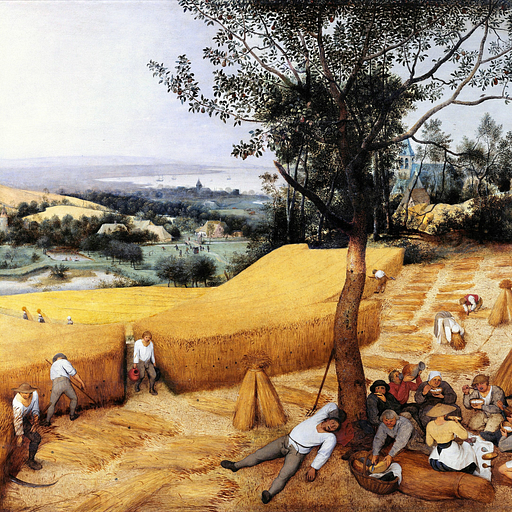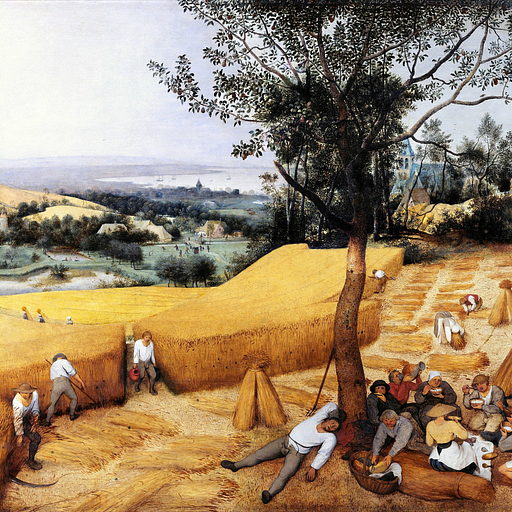The madman is the man who has lost everything except his reason
I always enjoy reading L.M. Sacasas' thoughts on the intersection of technology, society, and ethics. This article is no different. In addition to the quotation from G.K. Chesterton which provides the title for this post, Sacasas also quotes Wendell Berry as saying, “It is easy for me to imagine that the next great division of the world will be between people who wish to live as creatures and people who wish to live as machines."
While I’ve chosen to highlight the part riffing off David Noble’s discussion of technology as religion, I’d highly recommend reading the last three paragraphs of Sacasas' article. In it, he talks about AI as being “the culmination of a longstanding trajectory… [towards] the eclipse of the human person”.
The late David Noble’s The Religion of Technology: The Divinity of Man and the Spirit of Invention, first published in 1997, is a book that I turn to often. Noble was adamant about the sense in which readers should understand the phrase “religion of technology.” “Modern technology and modern faith are neither complements nor opposites,” Noble argued, “nor do they represent succeeding stages of human development. They are merged, and always have been, the technological enterprise being, at the same time, an essentially religious endeavor.”Source: Apocalyptic AI | The Convivial Society[…]
The Enlightenment did not, as it turns out, vanquish Religion, driving it far from the pure realms of Science and Technology. In fact, to the degree that the radical Enlightenment’s assault on religious faith was successful, it empowered the religion of technology. To put this another way, the Enlightenment—and, yes, we are painting with broad strokes here—did not do away with the notions of Providence, Heaven, and Grace. Rather, the Enlightenment re-framed these as Progress, Utopia, and Technology respectively. If heaven had been understood as a transcendent goal achieved with the aid of divine grace within the context of the providentially ordered unfolding of human history, it became a Utopian vision, a heaven on earth, achieved by the ministrations Science and Technology within the context of Progress, an inexorable force driving history toward its Utopian consummation.
[…]
In other words, we might frame the religion of technology not so much as a Christian heresy, but rather as (post-)Christian fan-fiction, an elaborate imagining of how the hopes articulated by the Christian faith will materialize as a consequence of human ingenuity in the absence of divine action.
Image: Midjourney (see alt text for prompt)
Technological Liturgies
A typically thoughtful article from L. M. Sacasas in which they “explore a somewhat eccentric frame by which to consider how we relate to our technologies, particularly those we hold close to our bodies.” It’s worth reading the whole thing, especially if you grew up in a church environment as it will have particular resonance.
I would propose that we take a liturgical perspective on our use of technology. (You can imagine the word “liturgical” in quotation marks, if you like.) The point of taking such a perspective is to perceive the formative power of the practices, habits, and rhythms that emerge from our use of certain technologies, hour by hour, day by day, month after month, year in and year out. The underlying idea here is relatively simple but perhaps for that reason easy to forget. We all have certain aspirations about the kind of person we want to be, the kind of relationships we want to enjoy, how we would like our days to be ordered, the sort of society we want to inhabit. These aspirations can be thwarted in any number of ways, of course, and often by forces outside of our control. But I suspect that on occasion our aspirations might also be thwarted by the unnoticed patterns of thought, perception, and action that arise from our technologically mediated liturgies. I don’t call them liturgies as a gimmick, but rather to cast a different, hopefully revealing light on the mundane and commonplace. The image to bear in mind is that of the person who finds themselves handling their smartphone as others might their rosary beads.Source: Taking Stock of Our Technological Liturgies | The Convivial Society[…]
Say, for example, that I desire to be a more patient person. This is a fine and noble desire. I suspect some of you have desired the same for yourselves at various points. But patience is hard to come by. I find myself lacking patience in the crucial moments regardless of how ardently I have desired it. Why might this be the case? I’m sure there’s more than one answer to this question, but we should at least consider the possibility that my failure to cultivate patience stems from the nature of the technological liturgies that structure my experience. Because speed and efficiency are so often the very reason why I turn to technologies of various sorts, I have been conditioning myself to expect something approaching instantaneity in the way the world responds to my demands. If at every possible point I have adopted tools and devices which promise to make things faster and more efficient, I should not be surprised that I have come to be the sort of person who cannot abide delay and frustration.
[…]
The point of the exercise is not to divest ourselves of such liturgies altogether. Like certain low church congregations that claim they have no liturgies, we would only deepen the power of the unnoticed patterns shaping our thought and actions. And, more to the point, we would be ceding this power not to the liturgies themselves, but to the interests served by those who have crafted and designed those liturgies. My loneliness is not assuaged by my habitual use of social media. My anxiety is not meaningfully relieved by the habit of consumption engendered by the liturgies crafted for me by Amazon. My health is not necessarily improved by compulsive use of health tracking apps. Indeed, in the latter case, the relevant liturgies will tempt me to reduce health and flourishing to what the apps can measure and quantify.
Technological Liturgies
A typically thoughtful article from L. M. Sacasas in which they “explore a somewhat eccentric frame by which to consider how we relate to our technologies, particularly those we hold close to our bodies.” It’s worth reading the whole thing, especially if you grew up in a church environment as it will have particular resonance.
I would propose that we take a liturgical perspective on our use of technology. (You can imagine the word “liturgical” in quotation marks, if you like.) The point of taking such a perspective is to perceive the formative power of the practices, habits, and rhythms that emerge from our use of certain technologies, hour by hour, day by day, month after month, year in and year out. The underlying idea here is relatively simple but perhaps for that reason easy to forget. We all have certain aspirations about the kind of person we want to be, the kind of relationships we want to enjoy, how we would like our days to be ordered, the sort of society we want to inhabit. These aspirations can be thwarted in any number of ways, of course, and often by forces outside of our control. But I suspect that on occasion our aspirations might also be thwarted by the unnoticed patterns of thought, perception, and action that arise from our technologically mediated liturgies. I don’t call them liturgies as a gimmick, but rather to cast a different, hopefully revealing light on the mundane and commonplace. The image to bear in mind is that of the person who finds themselves handling their smartphone as others might their rosary beads.Source: Taking Stock of Our Technological Liturgies | The Convivial Society[…]
Say, for example, that I desire to be a more patient person. This is a fine and noble desire. I suspect some of you have desired the same for yourselves at various points. But patience is hard to come by. I find myself lacking patience in the crucial moments regardless of how ardently I have desired it. Why might this be the case? I’m sure there’s more than one answer to this question, but we should at least consider the possibility that my failure to cultivate patience stems from the nature of the technological liturgies that structure my experience. Because speed and efficiency are so often the very reason why I turn to technologies of various sorts, I have been conditioning myself to expect something approaching instantaneity in the way the world responds to my demands. If at every possible point I have adopted tools and devices which promise to make things faster and more efficient, I should not be surprised that I have come to be the sort of person who cannot abide delay and frustration.
[…]
The point of the exercise is not to divest ourselves of such liturgies altogether. Like certain low church congregations that claim they have no liturgies, we would only deepen the power of the unnoticed patterns shaping our thought and actions. And, more to the point, we would be ceding this power not to the liturgies themselves, but to the interests served by those who have crafted and designed those liturgies. My loneliness is not assuaged by my habitual use of social media. My anxiety is not meaningfully relieved by the habit of consumption engendered by the liturgies crafted for me by Amazon. My health is not necessarily improved by compulsive use of health tracking apps. Indeed, in the latter case, the relevant liturgies will tempt me to reduce health and flourishing to what the apps can measure and quantify.



